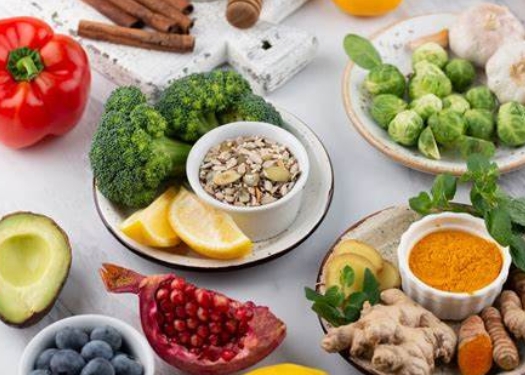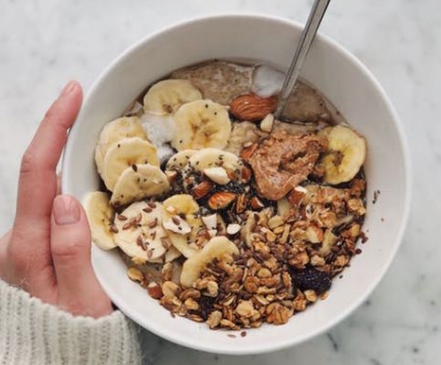In the quest for a healthy lifestyle, one term that frequently comes up is antioxidants. These powerful compounds are widely celebrated for their ability to protect the body from damage caused by harmful molecules known as free radicals. Free radicals are naturally produced in the body through processes such as metabolism and exposure to environmental factors like pollution, UV radiation, and smoking. When free radicals accumulate in the body, they can contribute to oxidative stress, which may lead to chronic diseases such as heart disease, cancer, and even premature aging. This is where antioxidants come in, offering a natural defense to maintain health and well-being.
Antioxidants work by neutralizing free radicals, preventing them from causing cellular damage. By incorporating antioxidant-rich foods into your diet, you can reduce the risk of inflammation, strengthen your immune system, and support long-term health. The most commonly known antioxidants include vitamin C, vitamin E, beta-carotene, and flavonoids, each offering unique health benefits.
Vitamin C is one of the most well-known antioxidants and plays a vital role in protecting cells from oxidative damage. It also supports the immune system by encouraging the production of white blood cells, which help fight infections. Vitamin C is abundant in fruits and vegetables, especially citrus fruits like oranges, lemons, and grapefruits, as well as strawberries, kiwis, bell peppers, and broccoli. Adding these foods to your daily meals can provide a powerful immune boost while helping to reduce the risk of chronic diseases.
Vitamin E is another important antioxidant that helps protect the body’s cells and tissues. It is fat-soluble, which means it can be stored in the body’s fatty tissues and used when needed. Vitamin E is essential for maintaining skin health, reducing inflammation, and promoting heart health by protecting blood vessels from oxidative stress. Foods rich in vitamin E include nuts (especially almonds and hazelnuts), seeds, spinach, and avocados. Including these foods in your diet can help support your skin, heart, and immune system.
Beta-carotene, a type of carotenoid found in many colorful fruits and vegetables, is converted into vitamin A in the body, where it plays a key role in maintaining eye health, promoting skin health, and supporting the immune system. Rich sources of beta-carotene include sweet potatoes, carrots, butternut squash, and dark leafy greens such as spinach and kale. These foods not only provide antioxidants but also offer a wealth of other vitamins and minerals that contribute to overall health.
Flavonoids are a diverse group of antioxidants found primarily in plant-based foods, particularly in fruits, vegetables, tea, and cocoa. They have strong anti-inflammatory and anti-cancer properties, which help reduce oxidative stress and prevent the development of chronic diseases. Examples of foods rich in flavonoids include berries (like blueberries, blackberries, and raspberries), apples, onions, citrus fruits, and green tea. Incorporating these foods into your diet can enhance heart health, support cognitive function, and promote healthy aging.
In addition to these key antioxidants, other compounds like selenium, zinc, and lycopene also play significant roles in the body’s defense system. Selenium, found in foods like Brazil nuts, sunflower seeds, and fish, is essential for antioxidant enzyme activity, which helps reduce inflammation and protect against certain cancers. Zinc, present in meat, shellfish, and legumes, supports immune function and helps maintain skin health. Lycopene, a powerful antioxidant found in tomatoes, watermelon, and pink grapefruit, has been shown to reduce the risk of prostate cancer and improve heart health.
A diet rich in antioxidants not only protects the body from disease but also promotes healthy aging. Free radical damage is one of the leading causes of premature aging, contributing to wrinkles, sagging skin, and age-related cognitive decline. By choosing antioxidant-rich foods, you can slow down the aging process and keep your skin youthful, your mind sharp, and your body in top condition.
To make sure you’re getting enough antioxidants, aim to incorporate a variety of colorful fruits and vegetables into your diet every day. The more variety in color and type, the more antioxidants you’ll be able to consume. A diet that includes a wide range of antioxidant-rich foods ensures you’re getting a variety of different nutrients that work together to protect your health.
Incorporating whole grains, legumes, nuts, and seeds into your meals is another great way to boost your antioxidant intake. Whole grains like quinoa, brown rice, and oats are rich in vitamin E and selenium, while nuts and seeds provide a variety of antioxidants, healthy fats, and fiber that support overall health.
While antioxidant supplements are available, getting antioxidants through whole foods is the best option, as these foods contain a wide variety of nutrients and phytochemicals that work synergistically to promote health. Furthermore, the absorption and effectiveness of antioxidants are often enhanced when consumed in their natural food form.
In conclusion, antioxidants are an essential part of a healthy diet and can provide numerous benefits, from reducing inflammation and preventing chronic diseases to promoting healthy aging. By including antioxidant-rich foods in your meals, you’re giving your body the tools it needs to fight oxidative stress, protect cells, and maintain optimal health. So, fill your plate with colorful fruits, vegetables, whole grains, nuts, and seeds to unlock the full potential of antioxidants and support your long-term well-being.





